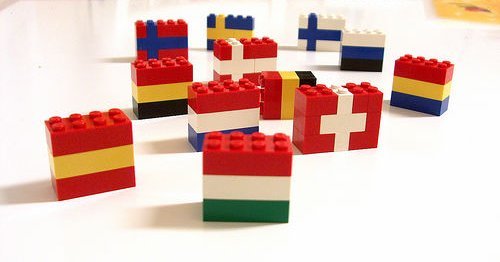Even if, according to the Community treaties, Nation-States have in the long run accepted the existence of a European citizenship, the nationality of our countries of origin is not accompanied, for all that, by a European nationality.
On the other hand, although the Treaty of Rome which instituted the European Economic Community admitted in its article 138 the necessity for an “Assembly” elected by direct universal suffrage, which has become “the European Parliament”, the “uniform procedure” which was also inscribed in the texts to give a full significance to the election remains dead letter to this day.
For this motive the European parties (such as the ESP, the EPP, etc.) save the appearances by manifesting their existence, but they do not constitute, yet, effective centres of power. These centres are still depending on their sole national headquarters and staffs, and, as everybody knows, they strictly apply the national rules of the game.
Finally, although the European Union has at its disposal a European budget, it amounts to only 0,9-1% of the GDP, and remains ridiculously low when we consider the central budgets of existing federations, amounting to 15- 25% of their own GDP.
As far as the European Union is concerned, in the midst of an accelerating globalisation, it remains a poorly identified political entity, whose outline and borders are drawn at a snail’s pace in a sort of fudge. Our national states keep going as they please. Even though they have accepted to delegate some of their “sovereign” prerogatives to common institutions, it is obvious that they have not yet become aware of an essential point: the stage of European unity is linked to a given time in the saga of the homo sapiens of modern times.
The realization in abstracto of a fully democratic community capable of making decisions in Europe and of acting as such in the planetary construction will be meaningful only if it does not take place too late in the scheme of historical evolution, to offer the services which it is legitimately expected to render.
This is the reason why, today more than ever, we must make up for lost time and catch up with history. The myth of the “United States of Europe”, whatever name we fasten upon it, answers a fundamental need to change the scale but also the content. By “changing the scale” we mean a new parcelling and fitting up of the space of integration thanks to a renewal of the measures which will allow to reach our aims. By change of content we mean a change in the relations which compose today’s European reality and allows us to describe it in all its scales, all its aspects and its deeper levels.
Indeed, the true rupture is not between a national political majority hinged on the “right of centre” and another majority hinged on “the left of centre”, even if these shifts are not without their importance; it resides first of all today in the choice of what institutions and society will be necessary to characterize European integration considered as a whole.
the process of federalisation of Europe is a global process which should create a specific model of services of general interest
In other words, the process of federalisation of Europe is a global process which should create a specific model of services of general interest, with sustainable development and participative democracy organized at every step of social life: local, regional, in the community, as well as in the field of citizens’ activity.
Europe will reach its full significance only if it becomes synonymous with the full development of an advanced society able to represent the anticipation of a new world order. It is in this direction that we must strive ceaselessly to proceed and for which we must organize ourselves in earnest. We must keep this in mind in view of June 2009 and the renewal of the European Parliament, when we must take up a major challenge for a significant improvement and increase of the voters’ participation in order to enlarge and strengthen its legitimacy.
I hope my call will be heard.
The article was originally published in The Federalist Debate, n. 3, 2008.

Follow the comments: |
|
